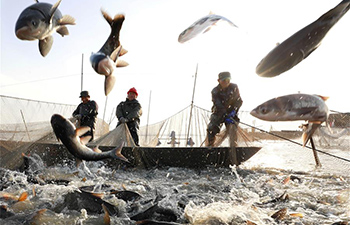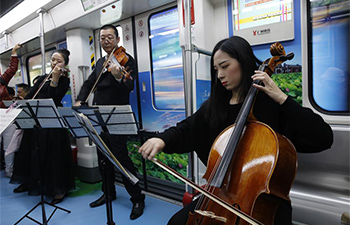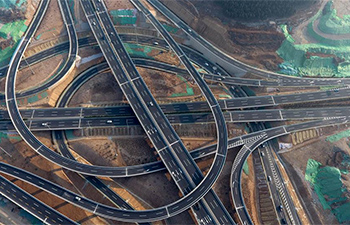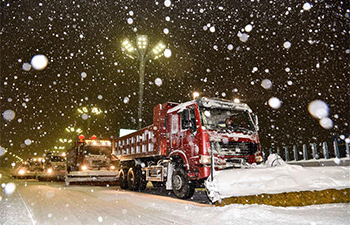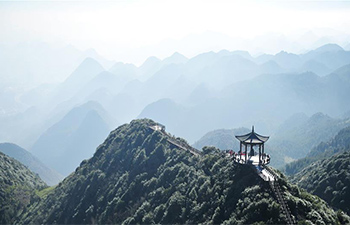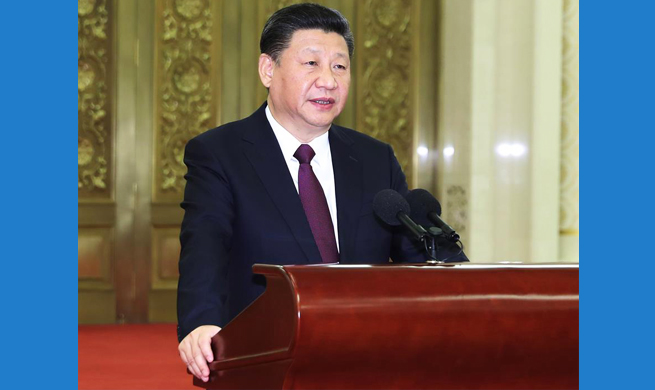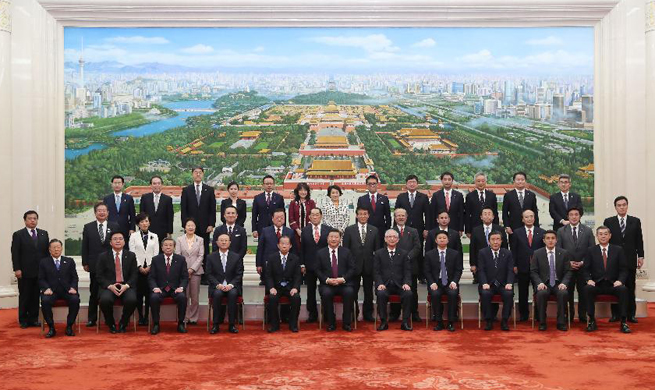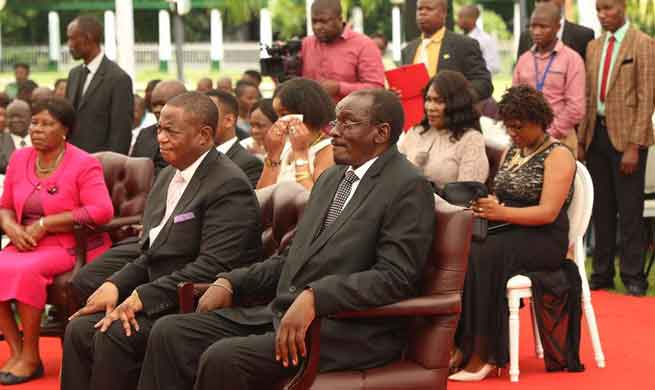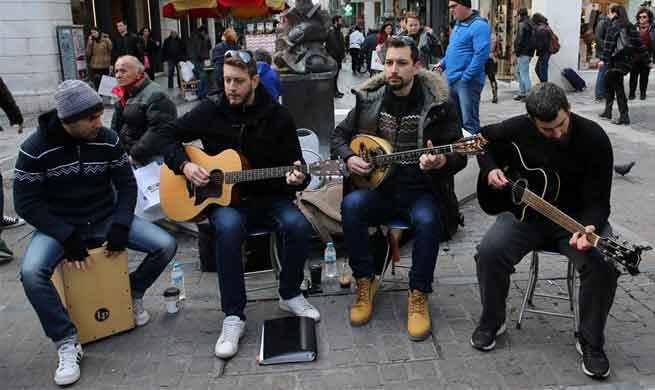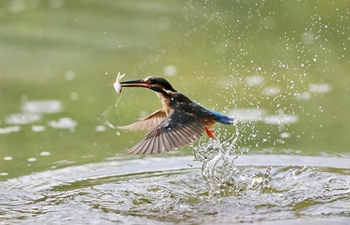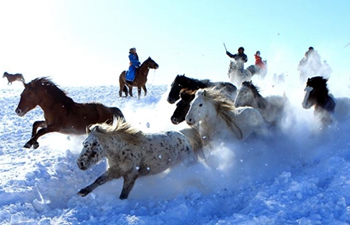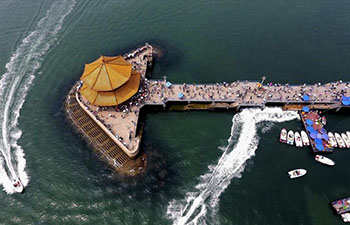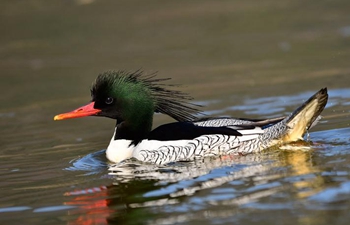by Raimundo Urrechaga
HAVANA, Dec. 28 (Xinhua) -- The year of 2017 was tough for Cuba, as Hurricane Irma tore through towns and farms along the northern coast, and the administration of U.S. President Donald Trump dealt with the newly-mended bilateral ties harshly.
Relations between the former Cold War foes barely had a chance to defrost before Trump put them back in ice box, skewing the direction of foreign policy changes made by his predecessor Barack Obama.
"The United States has reduced its relations with Cuba to a minimum," Iroel Sanchez, a Cuban international analyst told Xinhua in a recent interview.
Five months after taking office, Trump traveled to the heart of Miami, Florida's Cuban community in June to detail how he planned to reverse the thaw in ties, including reinstating restrictions on travel to Cuba.
"The backtracking attests to the Trump administration's decision to associate with very influential political sectors in the state of Florida that oppose any bilateral rapprochement," said Sanchez.
Once practically nonexistent, travel between the two countries boomed after Havana and Washington restored diplomatic ties.
According to official figures, 579,288 Americans visited Cuba between January and November of this year, nearly 250 percent more than in 2016.
But in recent weeks, that number has again dipped as a result of the restrictions and a travel warning issued in September by the U.S. State Department, which recommended Americans not visit the island.
New restrictions also prohibited U.S. companies from doing business with 179 Cuban enterprises with ties to the armed forces, which operate numerous strategic companies in Cuba, even in tourism, a key revenue generator.
That means Americans are barred from staying at any of 83 hotels linked to GAESA, a business conglomerate run by the armed forces.
However, U.S. sentiment towards Cuba has probably prevented the White House from taking even more drastic measures, said Sanchez.
"It seems the will of the Trump administration is to further roll back its Cuba policy. But U.S. public opinion and a large part of the country's business community have not allowed it. The political rhetoric has not been accompanied by tougher actions," Sanchez said.
While Cuba was reeling from the foreign policy about-face, and its potential impact on the economy, Hurricane Irma hit the Caribbean island in September, battering nearly 70 percent of the island.
Thousands of homes suffered total or partial damage, tourism and state infrastructure were also strongly impacted, and crops were wiped out.
The government estimated the losses at about 13 billion U.S. dollars, making it the worst tropical cyclone in Cuba's history.
The two difficulties, along with the economic crisis affecting Venezuela, Cuba's leading political and economic ally, dampened the country's economic growth.
Still, Cuba emerged from an economic recession last year, which registered a 1.6-percent growth in 2017, mainly due to the thriving tourism, construction, transport and agricultural sectors.
"The Cuban government has set priorities to boost foreign investment, sustain growth of the tourism industry, develop state enterprises, and increase labor and agricultural productivity," said Sanchez.
This year, for the first time, Havana managed to attract some 2 billion U.S. dollars in foreign investment to promote different key sectors.
"Cuba has diversified its foreign trade and international financial relations. The Cuban economy does not depend on a single market as happened in the past," said Sanchez.
What can Cuba expect in 2018, when general elections are expected to choose a new head of state and successor to President Raul Castro in April?
"The historic generation that came to power in the 1959 revolution will step aside and younger people who have assumed political responsibilities in the last few years in different organizations and government levels will lead the nation," said Sanchez.




